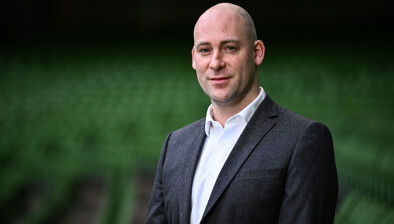High Court: €130,000 awarded to mother for nervous shock in relation to the death of her son

The High Court has awarded €130,000 in general damages to a mother whose son was killed when he was struck by a vehicle in 2017.

About this case:
- Citation:[2025] IEHC 527
- Judgment:
- Court:High Court
- Judge:Mr Justice Tony O'Connor
Delivering judgment for the High Court, Mr Justice Tony O’Connor found that “the plaintiff has suffered PTSD from the ‘horrific experience that she had’ in the aftermath of the incident which was complicated by her experience at the morgue, the inability to recover any of his clothing and having to endure the long inconclusive investigation into the circumstances including the identity of the driver”.
Aedan McGovern SC and Noel Cosgrove BL appeared for the plaintiff instructed by Bernadette M. Barry & Co., the first and second named defendants appeared as litigants in person, Paul Murray SC and Paul Henry O’Neill BL appeared for the third named defendant instructed by Stepehen Mackenzie & Co., and Edward Walsh SC and Eamon Marray SC appeared for the fourth named defendant instructed by Axa Legal Services.
Background
The plaintiff’s eldest son, Mr Stephen Lynch, died on 13 April 2017 having been struck and dragged along the road by a car in Tallaght, Co Dublin. His body remained at the scene with a tent around it until its removal on 14 April 2017.
An ensuing criminal investigation delayed the holding of an inquest into the death until 24 October 2024. The jury at the Inquest returned a verdict of “unlawful killing”.
The plaintiff issued proceedings seeking damages for nervous shock arising out of her son’s death, giving evidence to the effect that she had been “just existing” after the incident and had been diagnosed with post-traumatic stress disorder (PTSD).
The plaintiff gave evidence inter alia that she had been brought by car to the scene within 10 minutes of the incident, her daughter having received a text about the incident, and that she had difficulty identifying her son at the mortuary due to his injuries, which had been detailed in the report of the then deputy State pathologist, Michael Curtis.
The High Court
Having heard the evidence, Mr Justice O’Connor concluded that the plaintiff continued to suffer from severe PTSD which had attenuated in the last three years, and further, that the plaintiff was unlikely to recover from the PTSD which was separate to her grief. “In other words, the plaintiff is left with lifelong symptoms caused by nervous shock,” he said.
Noting that the Book of Quantum did not address the amounts to be awarded for PTSD, the judge turned to Sheehan v Bus Eireann [2020] IEHC 625 as “a model of clarity both in relation to the law about nervous shock and the approach to the assessment of damages for PTSD in the era before the mandatory application of ‘the Personal Injury Guidelines’.”
Considering that the plaintiff still felt agitation, sadness and a lack of joy in her life, and having regard inter alia to her ongoing depression and requirement for psychotherapeutic interventions, the court assessed general damages for the period of 13 April 2017 to date at €85,000 and general damages into the future at €45,000.
As to which of the defendants were liable for the plaintiff’s compensation, the court noted that a dispute had arisen between the third named defendant, the Motor Insurers’ Bureau of Ireland (MIBI), which is responsible for the compensation of uninsured or untraced drivers, and the fourth named defendant, AXA Insurance DAC as to whether the first named defendant, who held temporary insurance from AXA to drive the vehicle at the relevant time, was driving the vehicle at the time of the accident.
The court was satisfied that at the time of the incident, the vehicle was registered in the second named defendant’s name, but that his brother, the first named defendant, had transferred his own policy of insurance to the vehicle temporarily.
The court was further satisfied that in the absence of evidence to the contrary, the first defendant was the one who was driving the vehicle at the time of the incident as inter alia he was the only person insured to drive the vehicle that day, he refused to answer basic questions about when he used the vehicle and whether he was driving same on the day, he had been seen driving the vehicle in the week prior to the incident, his phone had been found at the scene and had been used 30 minutes prior to the incident, and he had not attempted to set aside the judgment obtained by the plaintiff in default of his defence, whereas the second defendant had little basis to do so as he was the registered owner of the vehicle.
Having heard submissions by the plaintiff to the effect that AXA’s conduct merited an award of aggravated damages where inter alia it avoided exhibiting the certificate of insurance until the trial of the action knowing that it was an essential proof, where it required the plaintiff to prove that her deceased son was lawfully present at the scene of the accident, and where it had taken a position until after the commencement of the trial that the vehicle had been stolen, Mr Justice O’Connor declined to award aggravated damages against AXA.
In this regard, the judge explained that it was “indeed unfortunate that directions for disclosure of any investigations conducted by AXA and any attempted communications by AXA with the first defendant did not follow the order permitting AXA to be joined as an additional named defendant”, noting: “It is for insurers and parties to encourage efficient fact finding. Trials like that which occurred in these proceedings will be more efficient from time and cost perspectives if insurers are directed to disclose material in compliance with the relevant data protection legislation and privacy rights at an early stage.”
The court continued: “Awaiting the outcome of the inquest and getting some clarity around whether a criminal prosecution would ensue, contributed significantly to the delay in have these proceedings resolved. The unfortunate circumstances around the death of the deceased son and the system for addressing wrongs cannot be attributed to AXA… There was no evidence of exacerbation of the plaintiff’s condition caused by AXA.”
Conclusion
Accordingly, the High Court invited the parties to address it on the final terms of the orders to be made following the delivery of the judgment.
Lynch v Reynolds & Ors [2025] IEHC 527










